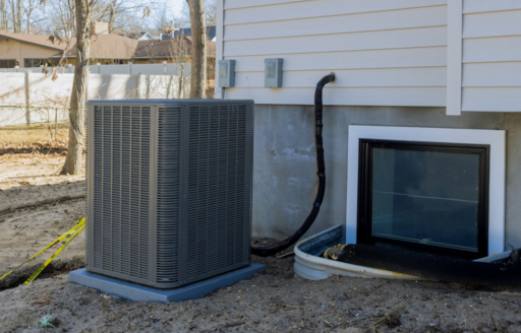As the temperatures rise, a functioning air conditioning system becomes essential for maintaining a comfortable and cool home environment. However, your AC unit may encounter issues that require immediate attention. In this article, we will discuss five common signs that indicate your air conditioning system needs troubleshooting as soon as possible. From unusual noises to poor airflow, it's important to be aware of these warning signs to ensure your AC unit continues to work efficiently.

Unusual Noises and Persistent Odors
One of the most obvious signs that your air conditioning system needs troubleshooting is the presence of unusual noises and persistent odors. If you start to hear strange sounds such as banging, clanking, or grinding coming from your AC unit, it could indicate a mechanical issue that needs to be addressed. Similarly, if you notice unpleasant odors emanating from your vents, it could be a sign of mold, mildew, or even a dead animal in your ductwork.
These issues should not be ignored, as they could indicate a serious problem with your air conditioning system that could worsen over time if left unchecked. It's important to consult a professional HVAC technician to diagnose and resolve these issues as soon as possible to ensure the safety and efficiency of your air conditioning system.
Insufficient Cooling and Warm Air Emission
One of the most obvious signs that your air conditioning unit is in need of troubleshooting is when it is not providing sufficient cooling and instead emitting warm air. This can be a frustrating and uncomfortable problem, especially during the hot summer months. There are several potential causes for this issue, including a dirty air filter, blocked vents, or a malfunctioning compressor. It is important to address this issue as soon as possible to avoid further damage to the unit and to ensure that your home remains cool and comfortable.
Frequent Cycles and High Humidity Issues
One of the signs that your air conditioning system needs troubleshooting is when it starts to cycle on and off frequently. This can indicate a problem with the system's efficiency and may be a sign that it is struggling to maintain the desired temperature in your home. Additionally, high humidity levels inside the home can also be a sign that your air conditioning system is not functioning properly. Excessive humidity can make the indoor air feel muggy and uncomfortable, and it can also lead to issues such as mold and mildew growth. If you notice that your air conditioning system is cycling on and off frequently or if you are experiencing high humidity levels in your home, it is important to have a professional technician inspect and troubleshoot your system as soon as possible to avoid further damage and discomfort.
Water Leaks and Electrical Problems
Water leaks and electrical problems are two serious issues that can arise with your air conditioning system. If you notice water leaking from your AC unit, it could be a sign of a clogged or damaged condensate line, which can lead to water damage and mold growth if not addressed promptly. Additionally, electrical problems such as faulty wiring or malfunctioning components can pose a fire hazard and should be addressed by a professional immediately. If you notice any water leaks or electrical issues with your air conditioning system, it is important to troubleshoot the problem as soon as possible to prevent further damage and ensure the safety and efficiency of your cooling system.
Poor Airflow and Thermostat Inconsistencies
One of the most common signs that your air conditioning system needs troubleshooting is poor airflow throughout your home. If you notice that certain rooms are not receiving the same level of cool air as others, or if you feel like the airflow is weak overall, it could be a sign of a problem with your AC unit. This could be caused by a clogged air filter, blocked vents, or even a malfunctioning blower motor.
In addition to poor airflow, thermostat inconsistencies can also be a red flag that your air conditioning system is not functioning properly. If you find that your thermostat is not accurately reflecting the temperature in your home, or if you are experiencing drastic temperature fluctuations, it could indicate a problem with your AC unit. This could be due to a faulty thermostat, improper installation, or even issues with the wiring.
Both poor airflow and thermostat inconsistencies can lead to discomfort in your home, as well as potential strain on your air conditioning system. It is important to address these issues as soon as possible to prevent further damage and ensure that your home remains cool and comfortable during the warmer months.
